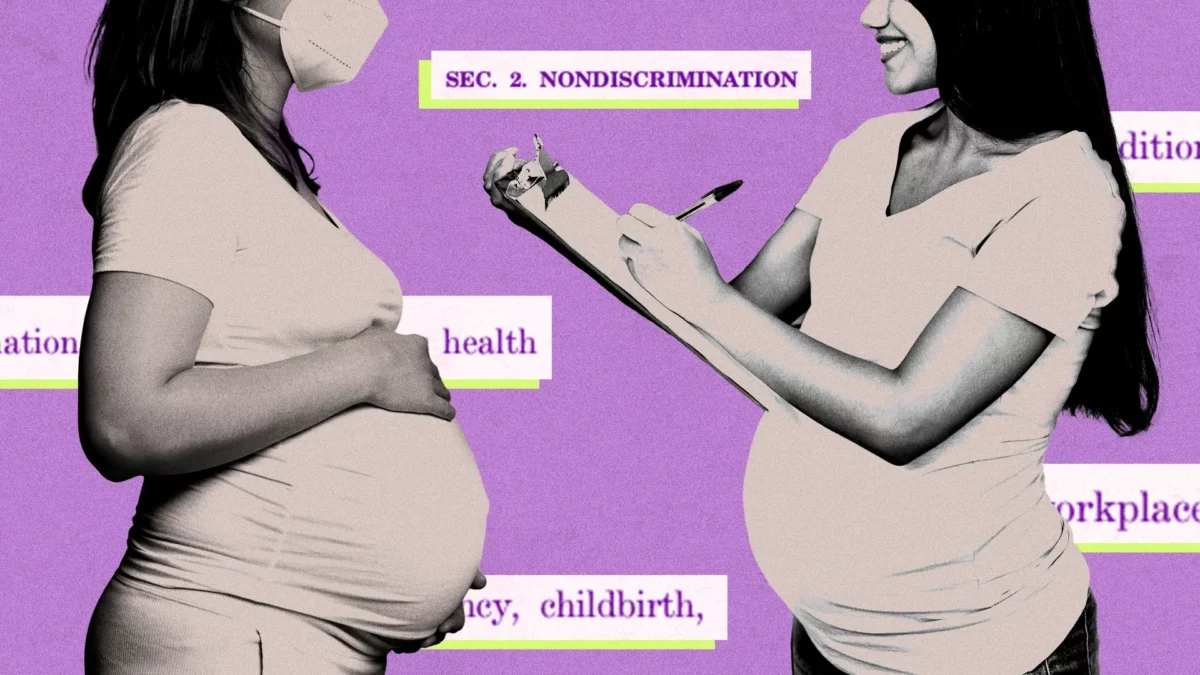
Starting last week, the Equal Employment Opportunity Commission (EEOC) is now accepting charges under the recently enacted Pregnant Workers Fairness Act (PWFA). Although pregnant workers have previously been protected under the Pregnancy Discrimination Act (PDA) and the Americans with Disabilities Act (ADA), as well as under other state laws, the PWFA enhances the federal protections provided to pregnant employees.
Previously, the PDA protected pregnant workers by prohibiting employers from discriminating against employees based on pregnancy, childbirth, or related conditions and ensuring that employers treat pregnant workers fairly and equally in employment decisions. However, the PDA does not require employers to provide reasonable accommodations to pregnant employees. The ADA requires employers to provide a reasonable accommodation, but only when an employee’s pregnancy, childbirth, or related condition amounts to a “disability” as defined in the ADA.
Whereas employers were previously only required to provide a reasonable accommodation when a pregnancy, childbirth, or related condition presented an “impairment that substantially limits one or more major life activity,” under the PWFA, employers must now provide a reasonable accommodation when there is a “known limitation” arising out of an employee’s pregnancy, childbirth, or related condition. Essentially, the PWFA broadens the circumstances in which employers must provide reasonable accommodations to pregnant employees. The new law specifically states that an employee is qualified even if the inability to perform an essential function is for a “temporary period.” (emphasis added). However, the law does refer to the ADA and indicates that a “reasonable accommodation,” the “interactive process,” and the “undue hardship” exception will be construed consistently as they are interpreted in the ADA. Finally, the new law has similar anti-discrimination provisions for pregnant employees and anti-retaliation protections for pregnant employees who request an accommodation.
Recommendations
To ensure compliance with the new PWFA, employers should consider the following:
• Update policies and handbooks: Previously, many employers may have accommodated pregnant employees under a “Disability Accommodations” policy. Employers should revisit these policies to clearly inform employees that reasonable accommodations are available to employees experiencing a known limitation related to pregnancy, childbirth, or related medical conditions. The EEOC has also developed a poster that employers can utilize to put employees on notice of their rights under the PWFA.
• In conducting the interactive process to provide a reasonable accommodation under the PWFA, employers should adopt updated standards that differ from the process to accommodate a disability. For example, employers should not utilize the same Medical Inquiry forms that they utilized when requesting a doctor to certify a disability of an employee. In fact, employers should generally avoid requiring any medical inquiry as a part of the interactive process under the PFWA. The law does not directly discuss medical inquiries, but the EEOC may address this in regulations that are expected to be promulgated this year. However, the statute states that there is a “known limitation” when the employee there is a “pregnancy, childbirth, or related medical condition that the employee or employee’s representative has communicated to the employer.” Once such information is communicated to an employer, the employer should engage with the employee to find a reasonable accommodation. Employers that are doubtful as to the legitimacy of a request should contact an attorney before requiring an employee to obtain a medical inquiry.
• Update training for supervisors and managers to make sure that they know how to respond to an employee’s request for accommodation.
• Revisit state-level protections to ensure that they are in compliance.
Pump Act
Employers should also be on notice of the PUMP Act, which went into effect earlier this year. The PUMP Act requires employers to provide reasonable break time to an employee to express breast milk for such employee’s nursing child for 1 year after the child’s birth each time the employee needs to do so. Employers should provide a private place, other than a bathroom, that employees may utilize to express breast milk. Although many states previously provided such protections to employees, the PUMP Act ensures those protections are in place at a federal level. Employers should review and update their policies to make sure that they are compliant with this and other similar state laws.
Contact your Kunzler Bean & Adamson attorneys if you have questions about any of these laws or requirements.
